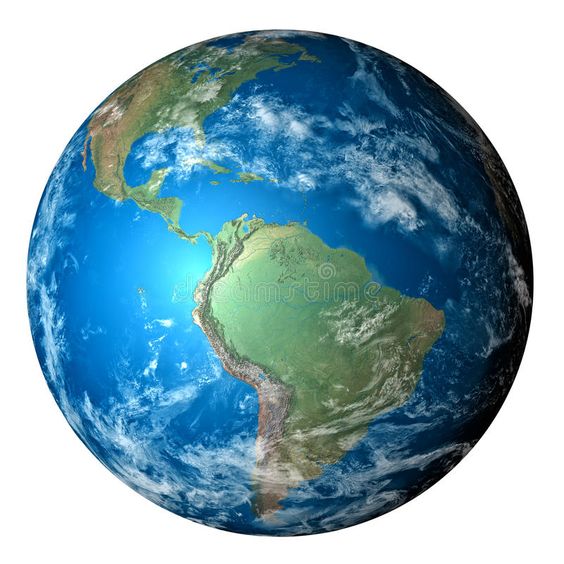
 Trump supporters continue to sport MAGA hats and shout “Make America Great Again” at rallies. But what does it mean? What makes America great and, perhaps more importantly, what makes it un-great?
Trump supporters continue to sport MAGA hats and shout “Make America Great Again” at rallies. But what does it mean? What makes America great and, perhaps more importantly, what makes it un-great?
By Tom Arms
Trump supporters continue to sport MAGA hats and shout “Make America Great Again” at rallies. It is a catchy slogan which has captured the conservative American imagination. It is here to stay whether Donald Trump is in or out of the White House.
But what does it mean? What makes America great and, perhaps more importantly, what makes it un-great?
The answer is complicated by the difficulty of wedding individual perspectives to universal truths. But I think it is important to search for it, so I have asked the opinion of a number of people with whom I have worked with over the years.
Carla Rapoport is an American journalist who has worked as a foreign correspondent, editor and publisher for Fortune and The Economist on three continents. She said that the answer I sought was best summed up in a key phrase from the American pledge of allegiance: “One nation, indivisible, with liberty and justice for all.” She added that American economic might “flows from being a union. Lose that and lose all that makes us good.”
French diplomat Jean-Michel Gaussot served as an ambassador four times over and was partly educated in the US. He answered my question with a list of rhetoricals which finished with “can America be great if it concentrates only on materialistic values, forgetting its ideals of liberty and respect for human rights and abroad?”
Another diplomat, this time British, is Ambassador Myles Wickstead replied that the single word “democracy” sums up American greatness. He added that American democracy has been “challenged” over the past four years and “triumphed”. “This will allow America to be a leading and positive role in the world again” which “in the eyes of the rest of the world, is what will make America great again.”
From the world of business I sought the views of Matthew Green, a finance director of a multinational. He placed a high premium on American culture but also said: “Americans doubtless think that there is a political aspect to greatness as in the 19th century concept of Great Powers—those powers that push minor powers around. It is impossible to separate this ‘being great’ from being a bully….Bullies must be respected, but I don’t call them great. China is very powerful, but it is not a great country in the way America still is.”
Back to journalists, and a former British journalist of the year, John Marquis, who admits to having been an Americaphile in the past. But “my views have changed radically over the last four years. I now see it as primarily a land of gun-toting boneheads, Bible-bashing religious bigots and shallow-based backwoodsmen.”
American missionary Paul Hanak voted for Donald Trump and considers himself a staunch Republican. He opined that “American greatness comes from the recognition of the worth of the individual, and the fact that each individual has inalienable rights grounded in natural law, not on loan from the government.”
The view from the developing world was provided by respected Indian journalist Ramananda Sengupta. He stressed the importance of the “American dream… which essentially revolves around the notion that anyone can attain their own version of success in a society where upward mobility is possible for everyone…This is particularly resonant with immigrants, many of whom lack such opportunities in their own countries.”
One man who immigrated to America as a child was Hungarian-born Tibor Nagy who rose through the ranks of the American diplomatic service to become US Assistant Secretary of State for African Affairs. Marrying America’s natural resources to a dynamic immigrant base has, in his opinion, created “the richest, most dynamic, productive and powerful nation in the world.” He adds: “Being able to thrive materially and professionally is wonderful, but it is the right to be free which most of us from overseas truly value.”
Back to my journalist friends and former defence correspondent Stuart Birch who stressed America’s world role since December 1941 when American isolation ended. Since then, he said, America has offered its “established strengths, capabilities and influence to make the world a safe place. That is a great role indeed.”
The last word is left to friend, neighbor and retired senior British diplomat Tim Holmes who asserts that both America’s greatness and weakness can be found in its written constitution—“A document which expresses basic truths while at the same time leaving the country stuck in an 18th century political and philosophical mould.”
To Trump and his sloganeering supporters American greatness is measured in dollars and cents and a rose-colored view of the immediate post-war years. The irony is that they failed—and are failing– because they ignored the values necessary to underwrite success. The more they push their version of American greatness they closer they come to destroying it.
 World Review
World Review
- Interesting week in the UK. The budget, Scottish shenanigans and the Northern Ireland protocol will all have international repercussions. British Chancellor Rishi Sunak is the first finance minister to lay down the foundations of a financial road map out of the pandemic. Basically, his proposed solution is, for the moment at least, to raise taxes on business, keep income tax the same to finance consumer spending, and to limit or cut government spending on social services, local government and transport. But that is only the start. He is promised the real squeeze in later budgets. Chancellor Sunak made it clear that the British government’s spending to cope with the pandemic was on a par with the two world wars and that higher taxes and less spending was the inevitable consequence. In Scotland, the headlines were grabbed by a fight to the finish between Scottish National Party leader and First Minister Nicola Sturgeon and her predecessor and mentor Alex Salmond, who had been charged and cleared of sexual harassment. Salmond claimed he was the victim of a conspiracy hatched by Ms Sturgeon and her associates. This week Ms Sturgeon was quizzed for ten hours by a Scottish parliamentary committee. The result was possibly even less clarity and the appearance of a badly divided party. This could easily impact on Scottish parliamentary elections in May and the SNP’s campaign for independence from the UK. Across the Irish Sea, the government of Boris Johnson has again decided breaking international law is the lesser of two evils by unilaterally extending the Northern Ireland Protocol to October (It was due to end this month). The unilateral extension jeopardizes the Good Friday Agreement; places the Republic of Ireland in a difficult political and economic position and will put Britain in the dock of the international court at a time when it most needs to be seen as a champion of the international rule of law.
- Yemen is another British embarrassment. The Johnson government announced this week that because of the costs of the pandemic it was reducing humanitarian aid to the war-torn Arab country by half from $240 million to $120 million a year. One of the few things that can be said in Britain’s defense is that it is not alone. A UN-organized international pledging conference aimed at raising $3.87 billion for Yemen managed only $1.7 billion. UN Secretary General Antonio Guterres urged donor countries to think again in order to stave off “the worst famine the world has seen in decades.” So far an estimated 140,000 people have been killed and four million displaced by the six-year civil war between Iranian-backed Houthi rebels and the Saudi-backed government forces. The UN estimates that at the moment 500,000 Yemenis are starving and another 16 million could suffer the same fate this year unless aid reaches them quickly. Meanwhile, Houthi forces are closing in on the government stronghold of Marib in northern Yemen. Hundreds of thousands of refugees have fled to the city and are sleeping in the streets and in makeshift camps on the outskirts of Marib. The International Organization of Migration reckons that a Houthi victory would overnight displace another 385,000 Yemenis.
- Europe’s political pendulum appears to be swinging left. This week Germany’s right-wing political party Alternative for Deutschland (AfD) and Hungary’s ruling Fidesz Party both suffered setbacks. The AfD was founded in 2013 by disillusioned members of the center-right Christian Democratic Union. After the 2017 federal elections it was the third largest party in the Bundestag, had representation in 14 of the 16 Lander parliaments and seven seats in the European Parliament. The party has always been Euro-sceptic and anti-immigration, but since its 2017 success it has swung further to the right and is now embracing Islamophobia, anti-Semitism, covid-denial and some of the more outrageous right-wing conspiracy theories. This week it was revealed that the Afd has been classified an “extremist organization” which means that the German intelligence agency the BFV can now conduct surveillance of its activities, monitor its meetings and phone calls and intercept imembers’ emails. The AfD claims the move is purely political and designed at weakening the party before September’s federal elections. Hungary’s Fidesz Party is led by Europe’s darling of the far-right Viktor Orban. His moves to politicise the courts, ban immigrants and muzzle the press have brought into question Hungary’s continued membership of the EU. One of Orban’s major tools in combating Brussels has been his party’s membership of the European Parliament’s largest political grouping—the European People’s Party. This week the EPP changed its rules to allow it to expel Fidesz from its ranks and Orban quickly withdrew from the EPP umbrella just before he was given the boot.
- Ex-French President Nicolas Sarkozy has had a bad week. And it is likely to get worse. The 66-year-old former president and leader of the conservative Union for Popular Movement (UMP), was sentenced to a three year prison sentence. Two of the years were, however, suspended and the third is likely to involve an electronic ankle tag and house arrest. His crime? Attempting to bribe a French judge with the promise of a lucrative post in Monaco in return for information about an investigation into Sarkozy’s affairs. Sarkozy has predictably claimed he is the victim of a witch hunt and is appealing. However, at the same time he is facing another trial for alleged election campaign violations in his 2012 bid for a tenure in the Elysee Palace. That trial is due to start on 17 March. Sarkozy is also being investigated for allegedly receiving millions from the late Libyan dictator Muammar Gadaffi and was named in the Panama Papers scandal. Sarkozy is not the first former French president to fall foul of the law. In 2011, a Paris court declared Jacques Chirac guilty of diverting public funds and abusing public confidence. He received a two-year suspended prison sentence.
- ASEAN (or the Association of Southeast Asian Nations) is the closest thing Southeast Asia has to the European Union. It is a well-established trading bloc dating back to 1967, has its own overseas missions and international agreements and is a recognized force on the world stage. It is also known for its quiet internal diplomacy based on consultation and consensus-building which is another way of saying that its ten members refrain from criticizing each other’s human rights records. They even have a name for it—“The ASEAN Way.” There is a good reason for their mutual reticence. None of the ten members have sterling records when it comes to upholding democratic values. All of which makes it surprising that this week ASEAN foreign ministers pushed for the release of Burmese leader Aung San Suu Kyi and the return to democracy in Myanmar. The fact is that the need for regional stability has trumped quiet diplomacy. The other Southeast Asian nations are rightly concerned that the riots and demonstrations in Myanmar will undermine regional prosperity and possibly spill over into their own domains. In the meantime, the demonstrations continue. At the last count 58 people have died and neither the demonstrators nor the military have shown any signs of backing down.
______________________
About the Author
 Tom Arms is the London-based American foreign affairs journalist. He has nearly half a century’s experience of world affairs, and has written and broadcast for American, British and Commonwealth outlets. Positions he held included foreign correspondent, diplomatic correspondent, foreign editor, editor and founding CEO of an international diary news service. He is the author of “The Encyclopedia of the Cold War,” “The Falklands Crisis” and “World Elections on File.” His new book “America: Made in Britain” is expected this year.
Tom Arms is the London-based American foreign affairs journalist. He has nearly half a century’s experience of world affairs, and has written and broadcast for American, British and Commonwealth outlets. Positions he held included foreign correspondent, diplomatic correspondent, foreign editor, editor and founding CEO of an international diary news service. He is the author of “The Encyclopedia of the Cold War,” “The Falklands Crisis” and “World Elections on File.” His new book “America: Made in Britain” is expected this year.
{The views expressed in this article belong to the author and do not necessarily reflect the editorial policy of Sindh Courier}